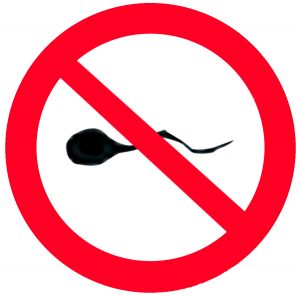The Real Problem with Bed-wetting
By Steve J. Hodges, MD, Pediatric Urologist
Wake Forest Baptist Health – Brenner Children’s Hospital
You may think you’ve tried everything.
Restricting your child’s fluid intake after dinner. Setting an alarm in the middle of the night to wake your child for a bathroom break. Keeping your child in underwear instead of a pull up so he’ll feel wet and hopefully wake up. Or, as a last resort, giving medication to slow urine production.
Sound familiar? You’re not alone. One out of every five children is a bed wetter.
But in most cases, parents are just masking the symptoms with these methods. The real problem is a much deeper medical issue, one that took me by surprise when we started to X-ray bedwetting sufferers in our pediatric urology clinic. Research shows for more than 80% of bed wetters, the problem is constipation.
How are they linked? Quite simply, when there is a backup of feces in the bowels, there is pressure on the bladder, causing it to spasm.
What causes this constipation? There are many culprits, such as our Western diet or societal pressures to potty train before a child is ready. Sometimes the problem isn’t obvious. I see patients who are bed wetters but have daily, normal-looking bowel movements. But when we X-ray their abdomen, we find they have large obstructions in their bowels.
If the symptoms can easily be missed, how do you know when your child is constipated?
1. Look past the poop stigma and consider that constipation is the most likely culprit. Let’s face it: no one likes to admit their child has potty problems. It’s much easier to consider they might just be a deep sleeper. But ignoring what is likely the real problem could lead to bigger problems down the road. A distended bowel is a very serious issue. It can cause urinary tract infections, embarrassing daytime accidents and even cause problems later in life.
2. Get checked. It’s important to talk to your child’s pediatrician and try the usual methods. But understand that constipation is not always easily diagnosed. While a pediatrician may press on the abdomen and not detect masses, this method does not rule out constipation.
3. Seek a specialist. If after three months the problem is not resolved, see a specialist. A pediatric urologist who is experienced with detecting constipation on an X-ray or ultrasound is your best bet. At Brenner Children’s Hospital, we have a team of physicians trained in treating this problem, including urologists, a gastroenterologist, psychologist and physical therapist.
4. Don’t be afraid of the tests or treatments. An X-ray is the best way to diagnose constipation – and it’s safe. The amount of radiation exposure from the X-ray would be about the same as living in your house for three months. To treat constipation, we often recommend an at-home method that can be performed over a weekend.
A high-fiber diet will do wonders for preventing a future relapse of constipation, but it will not cure the current problem. I can’t stress it enough – don’t ignore this issue! Bed-wetting and constipation are treatable, and not likely to go away without treatment. With a little guidance, you and your child could soon be sleeping soundly through the night.
For more information about bed-wetting and other urology services at Brenner Children’s Hospital, please visit us online. To make an appointment with one of our physicians, call 336-716-WAKE (9253).
Dr. Hodges wrote the book, It’s No Accident: Breakthrough Solutions to your Child’s Wetting, Constipation, UTIs, and Other Potty Problems. For a chance to WIN one of three copies of this book, post your comments about your experiences with bed-wetting or other potty issues. Be sure to include your email address when you comment so that we can contact you if you are one of the winners. We will choose the winners next Wednesday.

![[Clothes Hanging Storage Organizer] - Our hanging closet organizer comes with 2 sets of weekly labels in different colors, so you can choose according to your preference. There are 6 shelves of open storage space for easy access to clothes. Specially...](https://m.media-amazon.com/images/I/41Bjs3vGEcL._SL160_.jpg)


































